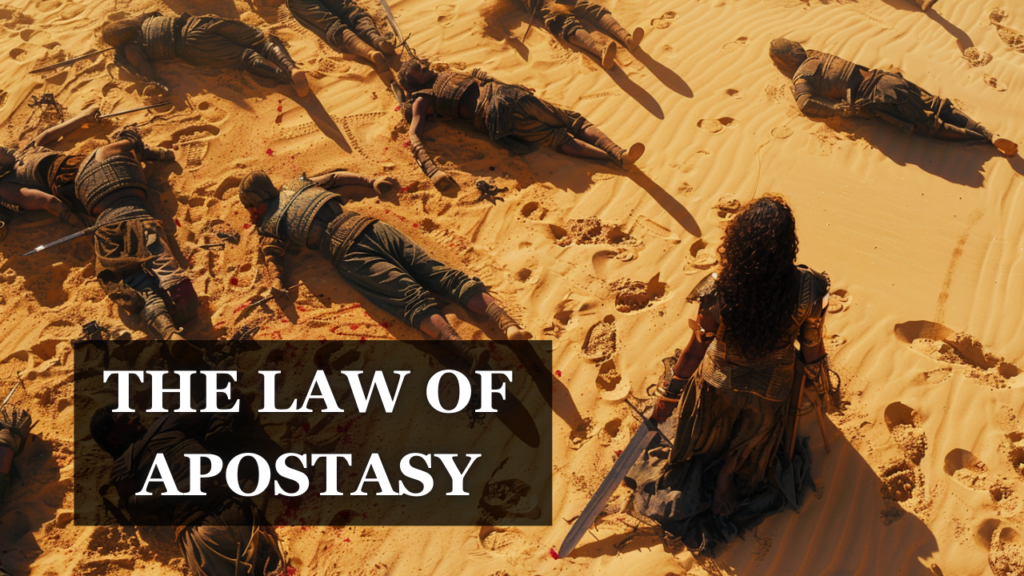Imam al-Shāfiʿī was a foundational figure in Islamic jurisprudence who lived during the 8th–9th century CE. I had already been familiar with many of his arguments in defense of hadith, but I was particularly interested in seeing how he engaged with the Quran-alone position. He has a work titled Kitāb Jāmiʿ al-ʿIlm in which he presents what appears to be a debate between himself and a Quranist from his time. The book is structured like a live exchange: the interlocutor makes a claim, al-Shāfiʿī responds with questions or counterarguments, and the dialogue continues, at times with rebuttals, other times with concessions. On the surface, it reads like a genuine intellectual back-and-forth, almost like watching a debate unfold in real time. But as I read more closely, it became increasingly clear that something was off.
As a Submitter that identifies fully with the Quran-alone perspective, I found myself disagreeing not only with al-Shāfiʿī, but with the so-called Quranist he was debating. That in itself isn’t necessarily surprising, after all, one of the critiques often leveled against Quranists is that they can arrive at wildly different interpretations. Perhaps this interlocutor simply held a different Quran-alone view than mine. However, the problem runs deeper than that. Throughout the exchange, the interlocutor concedes points that no sincere Quranist would accept, treating the Sunnah as if it were intrinsically linked with the Quran, accepting hadith-based legal distinctions, and even upholding ideas that contradict the Quran’s own descriptions of itself. These weren’t just differences in interpretation; they were fundamental contradictions to the Quran-alone methodology. All of this leads me to strongly suspect that this was not a real debate at all. It reads less like a transcript of an actual exchange and more like a rhetorical device. Al-Shāfiʿī was constructing a compliant opponent to better showcase his legal theory. In other words, Jāmiʿ al-ʿIlm may not reflect a genuine debate with a Quranist, but rather a staged dialogue designed to legitimize hadith-based jurisprudence. Here are some examples I note:
1. Conceding that “Wisdom” (al-ḥikmah) refers to the Sunnah
Al-Shāfiʿī’s Argument: Verses like 62:2 mention both “the Book and the Wisdom.” Since the Book is the Quran, “wisdom” must be something else—namely, the Sunnah.
Interlocutor’s Response: Accepts that “wisdom” is distinct from the Quran and refers to the Sunnah.
Why This Is a Problem: A true Quranist would challenge this on multiple fronts:
- The Quran itself uses ḥikmah to describe divine insight given by God, not an oral tradition later collected in books.
- Verses like 2:269, 3:48, and 17:39 show that wisdom is part of divine instruction or insight, not a separate legal corpus.
- The conjunction “and” (wa) in Arabic does not necessitate separation.
What Should Have Been Said:
“Show me where the Quran defines ḥikmah as the Prophet’s extra-Quranic speech. Interpretation should be based on how the Quran uses its own terms, not speculative extrapolation.”
٣٠ – قلت: قال: الله عز وجل: {وَاذْكُرْنَ مَا يُتْلَى فِي بُيُوتِكُنَّ مِنْ آيَاتِ اللَّهِ وَالْحِكْمَةِ إِنَّ اللَّهَ كَانَ لَطِيفاً خَبِيراً} [الأحزاب: ٣٤] . فأخبر أنه يتلى في بيوتهن شيئان.
30 – I [Shāfiʿī] said: God Almighty said:
“And remember what is recited in your homes of God’s revelations and wisdom. Surely, God is Sublime, All-Aware.” [33:34]
So He informed us that two things are recited in their homes.٣١ – قال: فهذا القرآن يتلى فكيف تتلى الحكمة؟.
31 – He [Quranist] said: So this Quran is recited—how then is wisdom recited?
٣٢ – قلت: إنما معنى التلاوة أن ينطق بالقرآن والسنة كما ينطق بها.
32 – I [Shāfiʿī] said: The meaning of recitation is simply that the Quran and the Sunnah are both spoken aloud, as they are spoken.
٣٣ – قال: فهذه أبين في أن الحكمة غير القرآن من الأولى.
33 – He [Quranist] said: This is even clearer than the first verse in showing that wisdom is something other than the Quran.
٣٤ – وقلت: افترض الله علينا إتباع نبيه صلى الله عليه وسلم.
34 – And I [Shāfiʿī] said: God has made it obligatory upon us to follow His Prophet, peace be upon him.
Source – https://shamela.ws/book/3197/5
2. Accepting That the Quran Needs External Clarification
Al-Shāfiʿī’s Argument: The Quran is too general in many areas; the Sunnah is required to clarify its details—such as how to pray, fast, or perform pilgrimage.
Interlocutor’s Response: Agrees that clarification must come from outside the Quran, namely the Sunnah.
Why This Is a Problem: The Quran repeatedly claims to be:
- Fully detailed (6:114),
- Explained in detail (17:12),
- A clear guidance (16:89).
A true Quranist would argue that anything essential to the religion is either present in the Quran, already known amongst the community, or left deliberately open for flexibility.
What Should Have Been Said:
“If God describes the Quran as complete, detailed, and sufficient for guidance, then claiming it needs external clarification undermines God’s divine testimony.”
3. Agreeing That Hadith Can Override or Specify Quranic Laws
Al-Shāfiʿī’s Argument: Certain legal rulings—such as exemptions from prayer or limitations in inheritance—are known only through hadith. These override or specify Quranic instructions.
Interlocutor’s Response: Accepts these hadith-based modifications without protest.
Why This Is a Problem: This directly contradicts key Quranic principles:
- “The word of your Lord has been perfected in truth and justice. No one can change His words.” (6:115)
- “Do they not reflect upon the Quran? If it were from any other than God, they would have found in it many contradictions.” (4:82)
A Quranist would never accept a second, unauthenticated source as a means to modify God’s law.
What Should Have Been Said:
“Introducing exceptions through hadith is a form of legislative interference. It implies that the Quran is incomplete or defective, something the Quran itself denies.”
4. Conceding That the Prophet Had Independent Legislative Authority
Al-Shāfiʿī’s Argument: The Prophet had divine authority to legislate in matters not covered in the Quran, and his hadiths are thus legally binding.
Interlocutor’s Response: Accepts this claim with little to no resistance.
Why This Is a Problem: The Quran describes the Prophet as:
- A conveyor of revelation (balāgh), not a co-legislator.
- Someone who says, “I only follow what is revealed to me.” (10:15)
- Subject to strict divine scrutiny: “Had he fabricated anything, We would have seized him.” (69:44–46)
A Quranist affirms the Prophet’s authority but only as a messenger of what was divinely revealed.
What Should Have Been Said:
“The Prophet’s authority derives entirely from revelation. He does not create laws independently. To claim otherwise is to invent a second source of divine legislation.”
5. Failing to Challenge the Assumed Authenticity of Hadith
Al-Shāfiʿī’s Assumption: The hadith corpus reliably represents the Prophet’s words and actions and is therefore binding.
Interlocutor’s Response: Never questions the historical reliability, transmission chains, or internal contradictions of hadith.
Why This Is a Problem: A core Quran-alone critique is precisely that:
- Hadith were compiled centuries after the Prophet’s death,
- The Quran never promises its preservation (unlike 15:9 for the Quran),
- Many hadith contradict each other and the Quran.
What Should Have Been Said:
“You are assuming that these reports are divinely preserved without any textual evidence. Divine law must be based on certainty, not historical probability.”
6. Accepting That “Obey the Messenger” Means Obey Hadith
Al-Shāfiʿī’s Argument: Verses like 4:59 and 33:21 command obedience to the Messenger, which proves the binding nature of hadith.
Interlocutor’s Response: Does not challenge this interpretation.
Why This Is a Problem: The Quran-alone position holds that:
- “Obey the Messenger” means obeying the message he delivered (i.e., the Quran),
- The Messenger does not bring a separate, parallel legal corpus,
- Verses like 10:15 and 6:19 emphasize that the Quran is the Prophet’s sole mission.
What Should Have Been Said:
“Obedience to the Messenger is obedience to the message he conveyed—the Quran. You cannot retroactively insert later narrations into the definition of his message.”
Conclusion
After going through these six major concessions, it’s clear to me that al-Shāfiʿī wasn’t debating a Quranist. He was debating someone who might have claimed to reject hadith, but still carried all the baggage of Sunni thinking. The guy already believed the Sunnah had legal authority, that the Prophet could legislate outside the Quran, and that hadith could override divine revelation. A real Quran-alone advocate would have pushed back at every step. They wouldn’t have conceded that “wisdom” meant something outside the Quran. They wouldn’t have accepted that the Quran is vague and needs outside clarification. They wouldn’t stay silent when hadith were used to limit or contradict Quranic laws. And they definitely wouldn’t let “obey the messenger” be redefined as “obey books of hadith compiled centuries later.”
So either Shāfiʿī was debating someone who had already bought into most of his assumptions — or the whole thing was scripted to look like a debate, while really just serving as a platform to walk through his own arguments unchallenged. And honestly, the way the interlocutor keeps conceding the most critical points with barely any resistance makes me lean toward the latter.


https://factszz.wordpress.com/2015/01/04/how-paul-of-islam-imam-shafii-deceived-true-followers-of-prophet-muhammad/